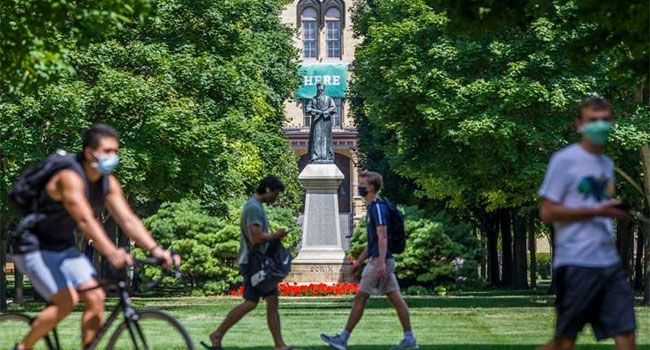
Notre Dame Hires More Security After Students Placed in Quarantine Violate Rules
Additional security staff have been added at The University of Notre Dame COVID-19 quarantine sites after some students violated safety protocols. Apparently the students left off-campus apartments and hotels.
The university has a code of conduct, which students have agreed to honor, but some student under quarantine or isolation failed to honor the agreement. Under the code of conduct, students who had been placed in isolation were required to remain in designated rooms, and now will face sanctions, including possible dismissal from the university.
The university has contracted with Monterrey Security and VSS Security Services to provide a total of eight staff members to monitor the facilities around the clock. Staff from the Indiana State Police Alliance will also offer security services, patrolling properties in marked police vehicles from 5:30 p.m. to 3:30 a.m. Officers will monitor whether students are leaving their rooms.
If a student violates the protocols, security staffers will file a report with the university’s Student Affairs department, and the disciplinary process will begin. The cost to the university has not been disclosed.
Notre Dame has secured rooms off-campus to isolate students who test positive for coronavirus and quarantine those who’ve had close contact with them or are awaiting test results. The university provides transportation to the sites and supplies the students with food.
Over the past week, some Notre Dame students and local residents have shared stories of frustration on social media, saying they were not notified that students who were tested for COVID-19 had moved into the apartment complexes and hotels.
“I live at one of the places,” one Reddit user commented on a post calling attention to The Landings and another potential site. “The kids in isolation don’t stay inside, don’t wear masks, don’t think about the children they could infect. … Nobody warned us. We came home to COVID-19 patients in our buildings not following the rules.”
University officials said that if students are following the quarantine rules, they pose no risk to other residents.